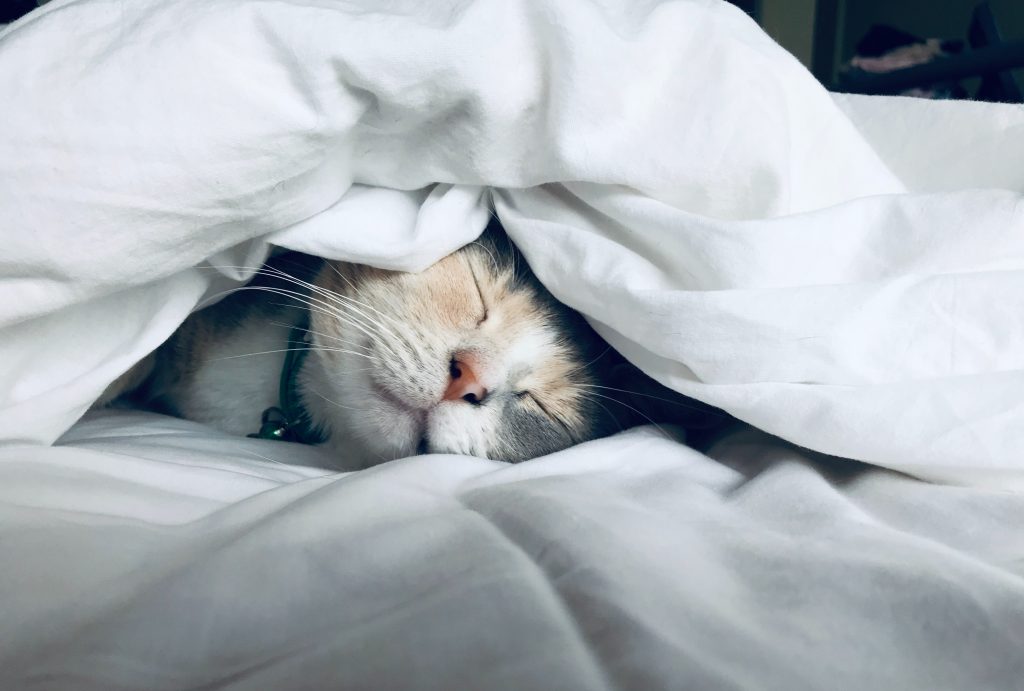Tips for better sleep (in time for the holidays)
National Sleep Comfort Month falls in November, and what better time to catch up on sleep than over the upcoming holidays? The College of Liberal Arts is here to help you gift yourself your best night’s sleep.

By Alix Poth ’18
National Sleep Comfort Month falls in November, coinciding with the perfect time of year for thinking about sleep habits. What better time to catch up or strive for better sleep than over the upcoming holidays?
Luckily, the College of Liberal Arts is here to help you gift yourself your best night’s sleep. We asked a few people from the Department of Psychological and Brain Sciences about the importance of sleep, and tips they would give to increase your sleep comfort.
Rebecca Schlegel, associate professor whose areas of research focus include well-being, said sleep is crucial for a multitude of reasons.
“It helps us consolidate our memories, immune functioning, and emotion regulation. I tell students that getting good sleep is one of the most important things you can do for yourself,” Schlegel said.
As for recommendations for increasing quality, comfortable sleep, Hannah Ballard, a third year Ph.D. student in the neuroscience program, drew on her research from her co-authored published paper in the Journal of Experimental Psychology: General that looked at ways to ease falling asleep.
“In summary, we found that writing a to-do list before bed decreased the amount of time it took to fall asleep,” Ballard said.
The study explained that “in today’s 24/7 society that emphasizes work productivity, many individuals’ to-do lists are extensive… Rather than journal about the day’s completed task or process tomorrow’s to-do list in one’s mind, the [experiment] suggests that individuals spend five minutes near bedtime thoroughly writing a to-do list.”
Schlegel also offered a few tips for better sleep: “I recommend trying to go to sleep around the same time every night, avoiding electronics for at least an hour before going to bed, getting some exercise during the day, and sleeping in a cool room if possible.”
While some people (especially students!) believe that they may be able to adjust their bodies to function on less sleep, Schlegel disputes this as a myth.
“Sometimes people think they have adapted to living without enough sleep, but not sleeping can actually trick you into feeling overconfident about your abilities to get by without sleep,” she said. “Research suggests its impossible to adapt to life without enough sleep. It’s a bit like the myth of multitasking – some people think they have learned to get good at it, but the research suggests this is usually a false sense of overconfidence as well.”
In summary, here are suggestions for getting the best possible sleep over the upcoming holidays!
1. Go to sleep around the same time each night

2. Avoid electronics for an hour before bed

3. Write a to-do list before bed to fall asleep easier

4. Exercise during the day

5. Set a cool temperature for your bedroom

6. Avoid caffeine before bedtime

Happy sleeping, Ags!
